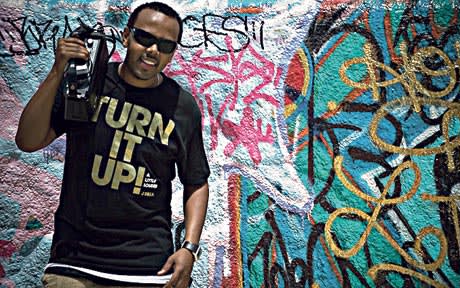The legacy of Miles Jones precedes him. With a Jamaican grandfather who helped shape the Studio One reggae sound and a DJ father (the infamous Deadly Headley Jones) who stoked the fires of the Toronto music scene, Jones has some big shoes to fill. But the rapper steps tall with an easy-going hip-hop sound that's as polished as it is reverential. Runaway Jones is the result of a young career honed by family history, a stint in university, international touring and appearances supporting KRS-One, Souls of Mischief, Raekwon and Thunderheist. Detroit's Black Milk blesses the project on first single "Never Too Late," a straightforward cut that effectively showcases Jones's less-is-more lyrical flow approach. "Runaway" ventures a little too much into the '90s era funk electronica but smooth joints like "Say What," "Never Wrong" and "Trust Me" (featuring RaSoul) rein it in and set heads nodding right. Despite the foray into AutoTune-land, a track like "Coast to Coast" (featuring Kae Sun) features a smooth flow that begs forgiveness. With Runaway Jones, the rapper sets the hip-hop foundation for a career that aims to reach the lofty heights set by the bloodlines before him.
You obviously come from a strong musical background. How does this influence your music and sound?
Being around my father and learning so much about my grandfather, I think it undeniably had an effect on me whether I wanted to be in music or not. I was just immersed in it and eventually the music seeped through and came to the main stage.
You started your label (Mojo Recordings) and you wear the hats of DJ, producers, rapper and songwriter? What drives you to do so much?
Wearing so many hats came out of necessity. I started DJing and DJing led to producing, which led to me looking for artists and songwriters, and [it] turned out I was the best artist and songwriter that I could find. I started out experimenting by recording a few tracks here and there and people started giving me encouragement to take it to the next level.
How do you define career?
As I get older, I start to realize how important it is to enrich and inspire others that are afraid and need that extra push to do something that they're not sure they can. So success to me is when you can affect and inspire those around you. That being said, you need a means to do so and that's what I've been trying to do with this record and this label.
(Mojo)You obviously come from a strong musical background. How does this influence your music and sound?
Being around my father and learning so much about my grandfather, I think it undeniably had an effect on me whether I wanted to be in music or not. I was just immersed in it and eventually the music seeped through and came to the main stage.
You started your label (Mojo Recordings) and you wear the hats of DJ, producers, rapper and songwriter? What drives you to do so much?
Wearing so many hats came out of necessity. I started DJing and DJing led to producing, which led to me looking for artists and songwriters, and [it] turned out I was the best artist and songwriter that I could find. I started out experimenting by recording a few tracks here and there and people started giving me encouragement to take it to the next level.
How do you define career?
As I get older, I start to realize how important it is to enrich and inspire others that are afraid and need that extra push to do something that they're not sure they can. So success to me is when you can affect and inspire those around you. That being said, you need a means to do so and that's what I've been trying to do with this record and this label.
